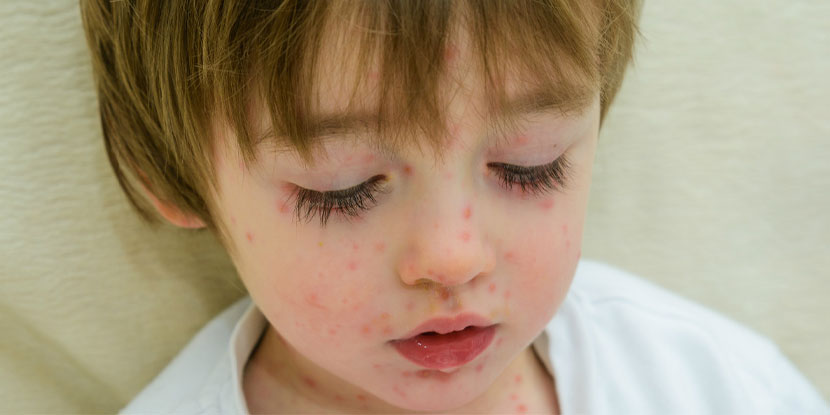Varicella-zoster virus causes chickenpox infection. An itchy rash of small fluid-filled blisters is formed on the body. As it is an infectious disease so it can be highly contagious to those who had never suffered from chickenpox disease or had never been vaccinated against it. Special vaccines are available for children that work against chickenpox. The vaccine is the only way to prevent chickenpox from happening in a child and stop the occurring of other possible complications.
There are many chances of this disease developing in people who have never contracted the virus before. Risk increases under five conditions; the recent contact with an infected person, an adult suffering from this disease living with children, child spending time in a child care facility where another child may transfer the virus, a person less than the age of 12 years, or if the immune system weakens due to medication or illness.
According to experts between 75 to 90 percent of the cases occur in children under the age of 10 and that the infectious disease usually spreads through sneezing, coughing, and breathing. Moreover, chickenpox does not discriminate between age, race, and gender and only spares those who are vaccinated.
Chickenpox is contagious from in the first 2 days before the rash forms and continues until all the lesions are crusted over throughout the body, which is usually about 5 days.
Symptoms
Fever, loss of appetite, headache, tiredness, itchy blister rashes, pink or red bumps that break out several days, crusts and scabs that cover the broken blisters.
Chickenpox is mild in children. But in some cases, rash covers the entire body and lesions form the throat, mucous membrane of the urethra, eyes and, anus.
Moreover, adults have a higher risk of developing complications in this disease. Especially, those adults with weak immune systems suffering from comorbidity of cancer, HIV, diabetes, and many other severe diseases.
Prevention
The vaccine is the best prevention of this disease. It prevents 98 percent of the people due to the recommended doses. Children are specifically recommended to inject vaccines between the age of 12 to 15 months of age. Adults and children who do not get vaccinated may receive catch-up doses of the vaccine. Older adults may opt for the shots later who have developed complicated chickenpox.
If one is not vaccinated in the past then try to avoid having physical contact with the person suffering from this disease and exercise social distancing because prevention is the only solution.
Image source link

















